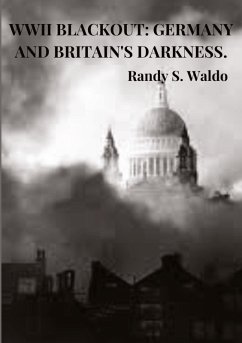This book addresses the scholarly neglect of the blackout's significant impact on British and German societies during World War II. Despite being the most pervasive civil defense measure arising from the advent of aerial bombing, the blackout has been largely sidelined in the historiography of the home front and the bombing campaigns. By situating the blackout within the broader context of aviation development and its social and economic implications, this study aims to deepen understanding of its profound influence on both nations. Drawing on extensive research from local and national government archives in Britain and Germany, supplemented by a wide range of secondary sources on the war and inter-war periods, the book argues that the blackout represented a substantial expansion of state intervention into civilian life. It explores how this measure affected the relationship between the state and its citizens, highlighting similarities and differences between wartime experiences in Britain and Germany. Ultimately, the study underscores the blackout's role as a pivotal, yet understudied, aspect of wartime social history, revealing its impact on societal cohesion and shared obligations within the wartime community
Bitte wählen Sie Ihr Anliegen aus.
Rechnungen
Retourenschein anfordern
Bestellstatus
Storno









